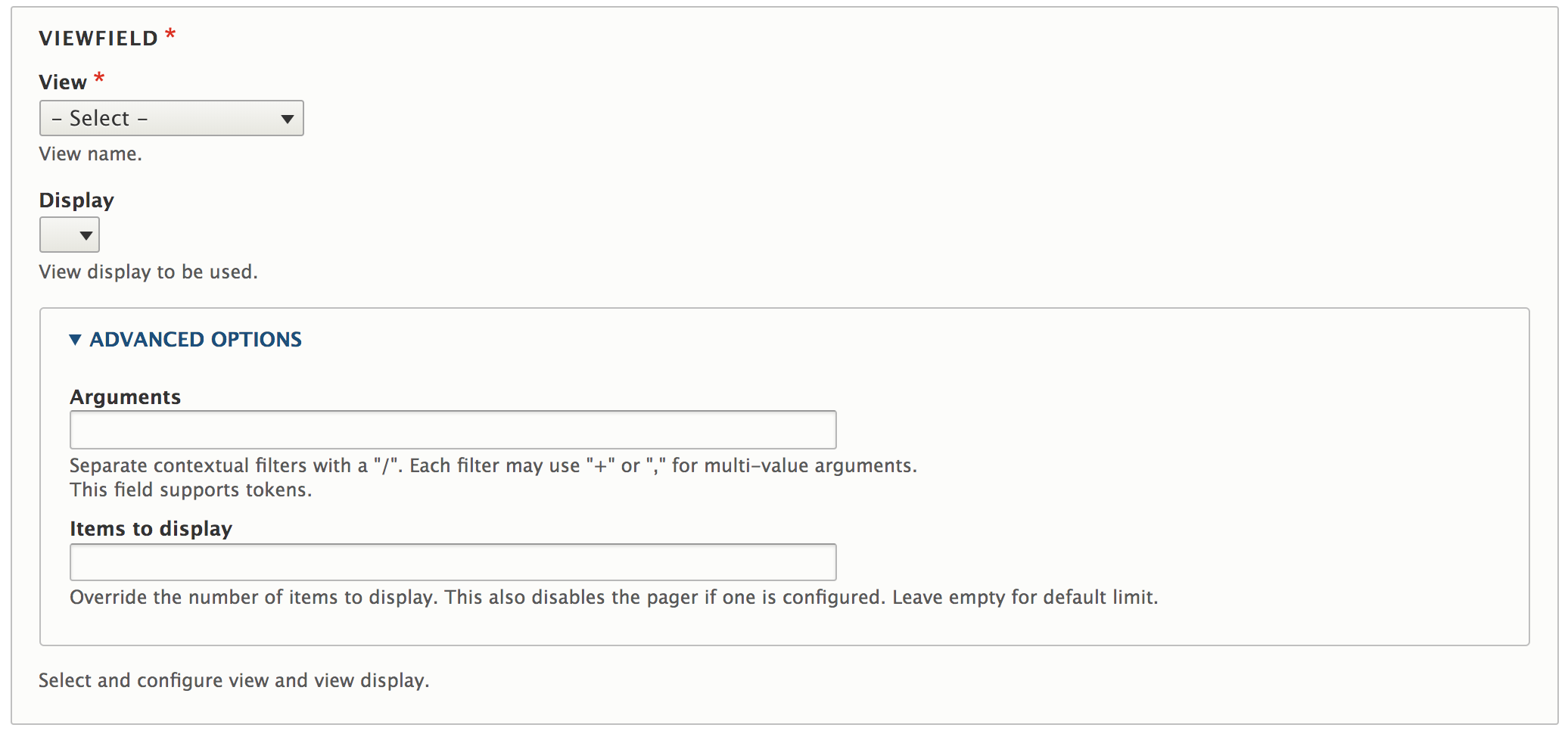
This section contains documentation comparing two or more core/contributed modules that provide similar functionality. See also the module comparison page in the old documentation, which has not yet been migrated here.


This page provides a detailed overview of site-building modules.
Cohesion
- CohesionDX.com: A layout system with components, acquired by Acquia.
Gutenberg
- Gutenberg: The Wordpress layout system integrated with Drupal.


This page is incomplete. See also the comparison page in the old documentation section.
Default Content


Introduction
Here is a list of modules that embed views into fields.
- Viewfield
- Views Reference Field
- Views Field View
Modules
Viewfield

Features


Several hundred contributed themes are available for Drupal 8, a complete list can be found here.
Below is extended documentation on just a few of the many available themes.


The bs_base project is a base theme aimed at supporting the complete Drupal theme development workflow from start to finish. It provides a subtheme-ready foundation using the Bootstrap 4.x framework. Additionally, this base theme offers a variety of tools for front-end developers to make their lives easier: Drush generator, SASS inheritance, powerful Gulp workflow, and more.


Barrio is a Bootstrap 4 base theme for Drupal 8 that uses twig root templates to completely override Drupal’s markup, generating full Bootstrap 4 markup and outputting almost all of Drupal 8’s HTML code.
This theme has no styling; it is not a layout, but serves as a starter theme.
Several configuration options are available for this theme out of the box via the settings form, in addition to unlimited possibilities through twig template editing.


Bootstrap 4 SASS - Barrio Starter Kit is a Barrio subtheme that simplifies the integration of Bootstrap 4 SASS with Drupal.
This subtheme overrides almost all of Drupal’s default CSS and replaces Bootstrap variables wherever possible to generate a new set of root-based CSS files.
Color management is based on Google Material Design, generating lighter and darker variations of the primary color to create hover effects or visual contrast.
